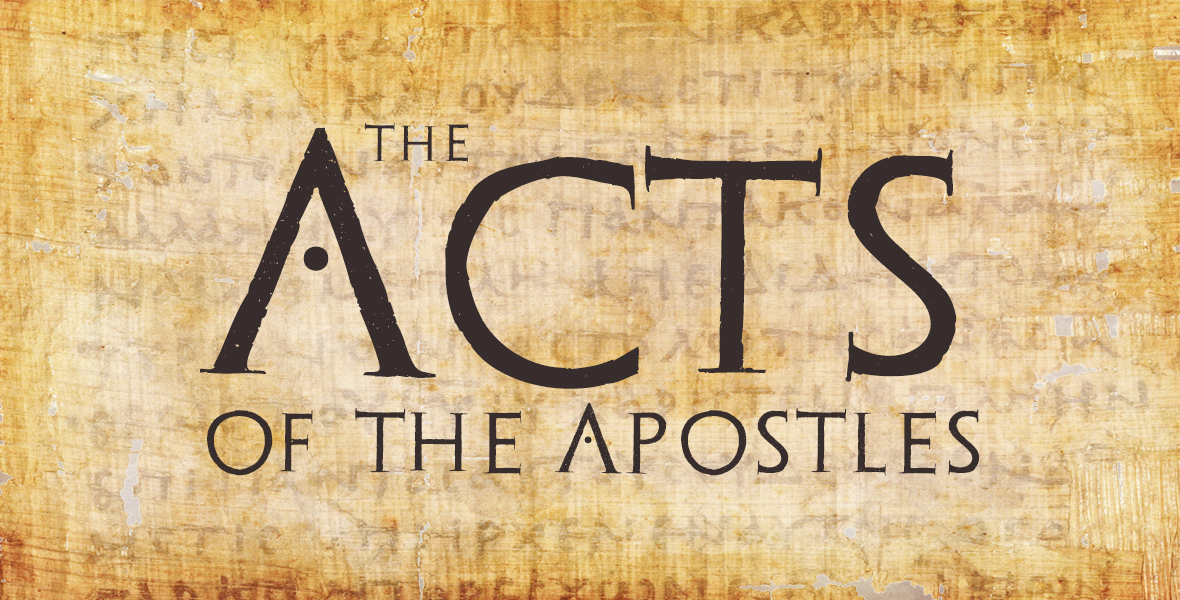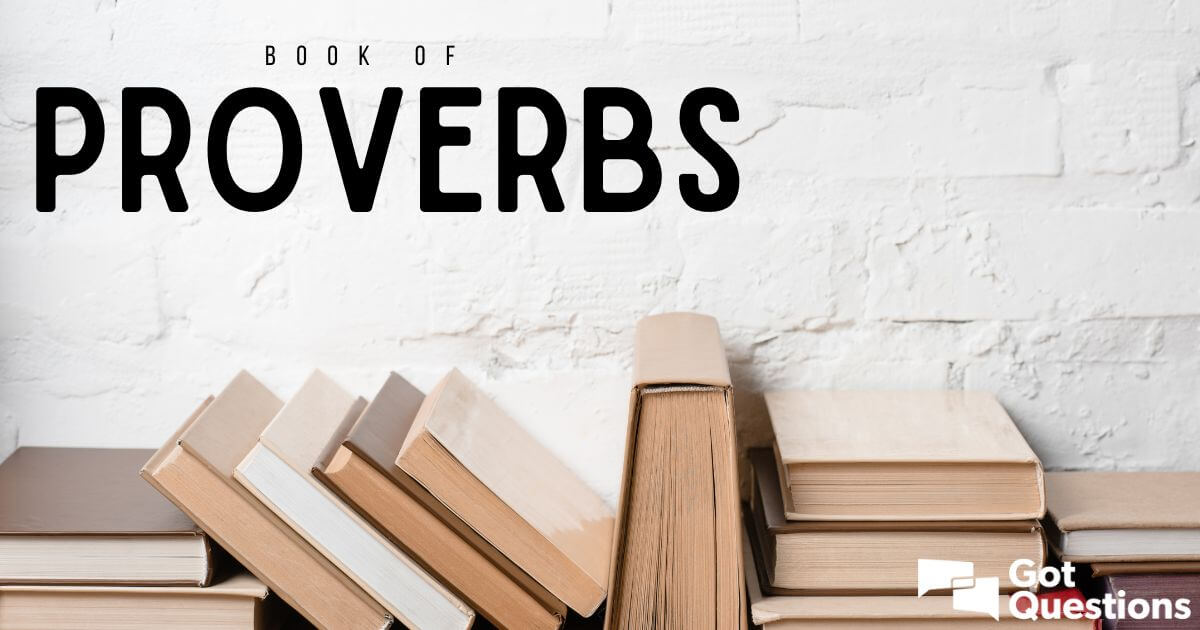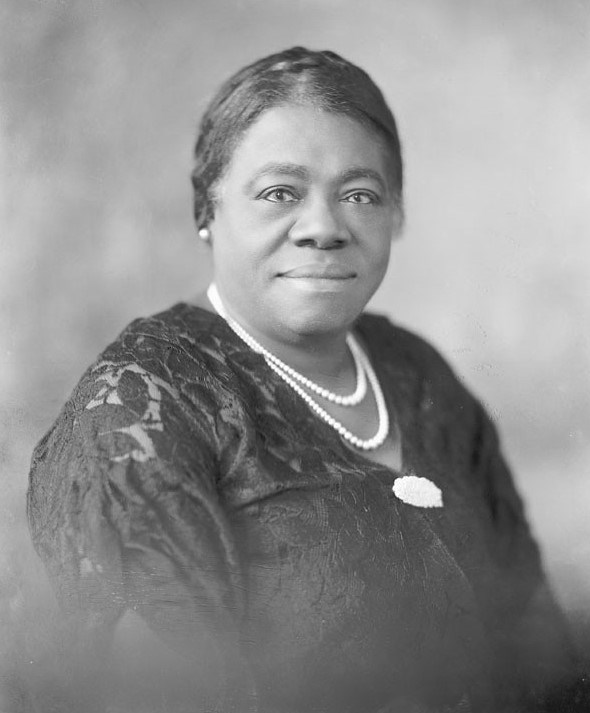
Let's read the Bible together in the next year. Today, our passages are 1 Chronicles 9:1–10:14; Acts 27:21-44; Psalm 8:1-9; and Proverbs 18:23-24. The readings are from The Message by Eugene H. Peterson.
1 Chronicles 9-10:14 (The Message)
1 Chronicles 9
1 This is the complete family tree for all Israel, recorded in the Royal Annals of the Kings of Israel and Judah at the time they were exiled to Babylon because of their unbelieving and disobedient lives.
The Back-from-Exile Community in Jerusalem
2 The first Israelites to return from exile to their homes and cities were the priests, the Levites, and the temple support staff.
3-6 Returning to Jerusalem from the families of Judah, Benjamin, Ephraim, and Manasseh were the following: Uthai son of Ammihud, the son of Omri, the son of Imri, the son of Bani, from the line of Perez son of Judah; from the Shilonites were Asaiah the firstborn and his sons; from the family of Zerah there was Jeuel. There were 690 in the Judah group.
7-9 From the family of Benjamin were Sallu son of Meshullam, the son of Hodaviah, the son of Hassenuah, and Ibneiah son of Jeroham, and Elah son of Uzzi, the son of Micri, and Meshullam son of Shephatiah, the son of Reuel, the son of Ibnijah. There were 956 in the Benjamin group. All these named were heads of families.
10-13 From the company of priests there were Jedaiah; Jehoiarib; Jakin; Azariah son of Hilkiah, the son of Meshullam, the son of Zadok, the son of Meraioth, the son of Ahitub, who was in charge of taking care of the house of God; Adaiah son of Jeroham, the son of Pashhur, the son of Malkijah; also Maasai son of Adiel, the son of Jahzerah, the son of Meshullam, the son of Meshillemith, the son of Immer. The priests, all of them heads of families, numbered 1,760, skilled and seasoned servants in the work of worshiping God.
14-16 From the Levites were Shemaiah son of Hasshub, the son of Azrikam, the son of Hashabiah, a Merarite; then Bakbakkar, Heresh, Galal, Mattaniah son of Mica, the son of Zicri, the son of Asaph; also Obadiah son of Shemaiah, the son of Galal, the son of Jeduthun; and finally Berekiah son of Asa, the son of Elkanah, who lived in the villages of the Netophathites.
17-18 The security guards were Shallum, Akkub, Talmon, Ahiman, and their brothers. Shallum was the chief and up to now the security guard at the King's Gate on the east. They also served as security guards at the camps of Levite families.
19-25 Shallum son of Kore, the son of Ebiasaph, the son of Korah, along with his brothers in the Korahite family, were in charge of the services of worship as doorkeepers of the Tent, as their ancestors had guarded the entrance to the camp of God. In the early days, Phinehas son of Eleazar was in charge of the security guards—God be with him! Now Zechariah son of Meshelemiah was the security guard at the entrance of the Tent of Meeting. The number of those who had been chosen to be security guards was 212—they were officially registered in their own camps. David and Samuel the seer handpicked them for their dependability. They and their sons had the permanent responsibility for guarding the gates of God's house, the house of worship; the main security guards were posted at the four entrances, east, west, north, and south; their brothers in the villages were scheduled to give them relief weekly—the four main security guards were responsible for round-the-clock surveillance.
26-32 Being Levites, they were responsible for the security of all supplies and valuables in the house of God. They kept watch all through the night and had the key to open the doors each morning. Some were in charge of the articles used in The Temple worship—they counted them both when they brought them in and when they took them out. Others were in charge of supplies in the sanctuary—flour, wine, oil, incense, and spices. And some of the priests were assigned to mixing the oils for the perfume. The Levite Mattithiah, the firstborn son of Shallum the Korahite, was responsible for baking the bread for the services of worship. Some of the brothers, sons of the Kohathites, were assigned to preparing the bread set out on the table each Sabbath.
33-34 And then there were the musicians, all heads of Levite families. They had permanent living quarters in The Temple; because they were on twenty-four-hour duty, they were exempt from all other duties. These were the heads of Levite families as designated in their family tree. They lived in Jerusalem.
3-6 Returning to Jerusalem from the families of Judah, Benjamin, Ephraim, and Manasseh were the following: Uthai son of Ammihud, the son of Omri, the son of Imri, the son of Bani, from the line of Perez son of Judah; from the Shilonites were Asaiah the firstborn and his sons; from the family of Zerah there was Jeuel. There were 690 in the Judah group.
7-9 From the family of Benjamin were Sallu son of Meshullam, the son of Hodaviah, the son of Hassenuah, and Ibneiah son of Jeroham, and Elah son of Uzzi, the son of Micri, and Meshullam son of Shephatiah, the son of Reuel, the son of Ibnijah. There were 956 in the Benjamin group. All these named were heads of families.
10-13 From the company of priests there were Jedaiah; Jehoiarib; Jakin; Azariah son of Hilkiah, the son of Meshullam, the son of Zadok, the son of Meraioth, the son of Ahitub, who was in charge of taking care of the house of God; Adaiah son of Jeroham, the son of Pashhur, the son of Malkijah; also Maasai son of Adiel, the son of Jahzerah, the son of Meshullam, the son of Meshillemith, the son of Immer. The priests, all of them heads of families, numbered 1,760, skilled and seasoned servants in the work of worshiping God.
14-16 From the Levites were Shemaiah son of Hasshub, the son of Azrikam, the son of Hashabiah, a Merarite; then Bakbakkar, Heresh, Galal, Mattaniah son of Mica, the son of Zicri, the son of Asaph; also Obadiah son of Shemaiah, the son of Galal, the son of Jeduthun; and finally Berekiah son of Asa, the son of Elkanah, who lived in the villages of the Netophathites.
17-18 The security guards were Shallum, Akkub, Talmon, Ahiman, and their brothers. Shallum was the chief and up to now the security guard at the King's Gate on the east. They also served as security guards at the camps of Levite families.
19-25 Shallum son of Kore, the son of Ebiasaph, the son of Korah, along with his brothers in the Korahite family, were in charge of the services of worship as doorkeepers of the Tent, as their ancestors had guarded the entrance to the camp of God. In the early days, Phinehas son of Eleazar was in charge of the security guards—God be with him! Now Zechariah son of Meshelemiah was the security guard at the entrance of the Tent of Meeting. The number of those who had been chosen to be security guards was 212—they were officially registered in their own camps. David and Samuel the seer handpicked them for their dependability. They and their sons had the permanent responsibility for guarding the gates of God's house, the house of worship; the main security guards were posted at the four entrances, east, west, north, and south; their brothers in the villages were scheduled to give them relief weekly—the four main security guards were responsible for round-the-clock surveillance.
26-32 Being Levites, they were responsible for the security of all supplies and valuables in the house of God. They kept watch all through the night and had the key to open the doors each morning. Some were in charge of the articles used in The Temple worship—they counted them both when they brought them in and when they took them out. Others were in charge of supplies in the sanctuary—flour, wine, oil, incense, and spices. And some of the priests were assigned to mixing the oils for the perfume. The Levite Mattithiah, the firstborn son of Shallum the Korahite, was responsible for baking the bread for the services of worship. Some of the brothers, sons of the Kohathites, were assigned to preparing the bread set out on the table each Sabbath.
33-34 And then there were the musicians, all heads of Levite families. They had permanent living quarters in The Temple; because they were on twenty-four-hour duty, they were exempt from all other duties. These were the heads of Levite families as designated in their family tree. They lived in Jerusalem.
The Family of Saul
35-38 Jeiel the father of Gibeon lived at Gibeon; his wife was Maacah. His firstborn son was Abdon, followed by Zur, Kish, Baal, Ner, Nadab, Gedor, Ahio, Zechariah, and Mikloth. Mikloth had Shimeam. They lived in the same neighborhood as their relatives in Jerusalem.
39-44 Ner had Kish, Kish had Saul, Saul had Jonathan, Malki-Shua, Abinadab, and Esh-Baal. Merib-Baal was the son of Jonathan and Merib-Baal had Micah. Micah's sons were Pithon, Melech, and Tahrea. Ahaz had Jarah, Jarah had Alemeth, Azmaveth, and Zimri; Zimri had Moza, Moza had Binea, Rephaiah was his son, Eleasah was his son, and Azel was his son. Azel had six sons: Azrikam, Bokeru, Ishmael, Sheariah, Obadiah, and Hanan—the sons of Azel.
39-44 Ner had Kish, Kish had Saul, Saul had Jonathan, Malki-Shua, Abinadab, and Esh-Baal. Merib-Baal was the son of Jonathan and Merib-Baal had Micah. Micah's sons were Pithon, Melech, and Tahrea. Ahaz had Jarah, Jarah had Alemeth, Azmaveth, and Zimri; Zimri had Moza, Moza had Binea, Rephaiah was his son, Eleasah was his son, and Azel was his son. Azel had six sons: Azrikam, Bokeru, Ishmael, Sheariah, Obadiah, and Hanan—the sons of Azel.
1 Chronicles 10
1-5 The Philistines went to war against Israel; the Israelites ran for their lives from the Philistines but fell, slaughtered on Mount Gilboa. The Philistines zeroed in on Saul and his sons and killed his sons Jonathan, Abinadab, and Malki-Shua. The battle went hard against Saul—the archers found him and wounded him. Saul said to his armor bearer, "Draw your sword and finish me off before these pagan pigs get to me and make a sport of my body." But his armor bearer, restrained by both reverence and fear, wouldn't do it. So Saul took his own sword and killed himself. The armor bearer, panicked because Saul was dead, then killed himself.
6-7 So Saul and his three sons—all four the same day—died. When all the Israelites in the valley saw that the army had fled and that Saul and his sons were dead, they abandoned their cities and ran off; the Philistines came and moved in.
8-10 The next day the Philistines came to plunder the dead bodies and found Saul and his sons dead on Mount Gilboa. They stripped Saul, removed his head and his armor, and put them on exhibit throughout Philistia, reporting the victory news to their idols and the people. Then they put Saul's armor on display in the temple of their gods and placed his skull as a trophy in the temple of their god Dagon.
11-12 The people of Jabesh Gilead heard what the Philistines had done to Saul. All of their fighting men went into action—retrieved the bodies of Saul and his sons and brought them to Jabesh, gave them a dignified burial under the oak at Jabesh, and mourned their deaths for seven days.
13-14 Saul died in disobedience, disobedient to God. He didn't obey God's words. Instead of praying, he went to a witch to seek guidance. Because he didn't go to God for help, God took his life and turned the kingdom over to David son of Jesse.
6-7 So Saul and his three sons—all four the same day—died. When all the Israelites in the valley saw that the army had fled and that Saul and his sons were dead, they abandoned their cities and ran off; the Philistines came and moved in.
8-10 The next day the Philistines came to plunder the dead bodies and found Saul and his sons dead on Mount Gilboa. They stripped Saul, removed his head and his armor, and put them on exhibit throughout Philistia, reporting the victory news to their idols and the people. Then they put Saul's armor on display in the temple of their gods and placed his skull as a trophy in the temple of their god Dagon.
11-12 The people of Jabesh Gilead heard what the Philistines had done to Saul. All of their fighting men went into action—retrieved the bodies of Saul and his sons and brought them to Jabesh, gave them a dignified burial under the oak at Jabesh, and mourned their deaths for seven days.
13-14 Saul died in disobedience, disobedient to God. He didn't obey God's words. Instead of praying, he went to a witch to seek guidance. Because he didn't go to God for help, God took his life and turned the kingdom over to David son of Jesse.
Acts 27:21-44 (The Message)
21-22With our appetite for both food and life long gone, Paul took his place in our midst and said, "Friends, you really should have listened to me back in Crete. We could have avoided all this trouble and trial. But there's no need to dwell on that now. From now on, things are looking up! I can assure you that there'll not be a single drowning among us, although I can't say as much for the ship—the ship itself is doomed.
23-26"Last night God's angel stood at my side, an angel of this God I serve, saying to me, 'Don't give up, Paul. You're going to stand before Caesar yet—and everyone sailing with you is also going to make it.' So, dear friends, take heart. I believe God will do exactly what he told me. But we're going to shipwreck on some island or other."
27-29On the fourteenth night, adrift somewhere on the Adriatic Sea, at about midnight the sailors sensed that we were approaching land. Sounding, they measured a depth of 120 feet, and shortly after that ninety feet. Afraid that we were about to run aground, they threw out four anchors and prayed for daylight.
30-32Some of the sailors tried to jump ship. They let down the lifeboat, pretending they were going to set out more anchors from the bow. Paul saw through their guise and told the centurion and his soldiers, "If these sailors don't stay with the ship, we're all going down." So the soldiers cut the lines to the lifeboat and let it drift off.
33-34With dawn about to break, Paul called everyone together and proposed breakfast: "This is the fourteenth day we've gone without food. None of us has felt like eating! But I urge you to eat something now. You'll need strength for the rescue ahead. You're going to come out of this without even a scratch!"
35-38He broke the bread, gave thanks to God, passed it around, and they all ate heartily—276 of us, all told! With the meal finished and everyone full, the ship was further lightened by dumping the grain overboard.
39-41At daybreak, no one recognized the land—but then they did notice a bay with a nice beach. They decided to try to run the ship up on the beach. They cut the anchors, loosed the tiller, raised the sail, and ran before the wind toward the beach. But we didn't make it. Still far from shore, we hit a reef and the ship began to break up.
42-44The soldiers decided to kill the prisoners so none could escape by swimming, but the centurion, determined to save Paul, stopped them. He gave orders for anyone who could swim to dive in and go for it, and for the rest to grab a plank. Everyone made it to shore safely.
23-26"Last night God's angel stood at my side, an angel of this God I serve, saying to me, 'Don't give up, Paul. You're going to stand before Caesar yet—and everyone sailing with you is also going to make it.' So, dear friends, take heart. I believe God will do exactly what he told me. But we're going to shipwreck on some island or other."
27-29On the fourteenth night, adrift somewhere on the Adriatic Sea, at about midnight the sailors sensed that we were approaching land. Sounding, they measured a depth of 120 feet, and shortly after that ninety feet. Afraid that we were about to run aground, they threw out four anchors and prayed for daylight.
30-32Some of the sailors tried to jump ship. They let down the lifeboat, pretending they were going to set out more anchors from the bow. Paul saw through their guise and told the centurion and his soldiers, "If these sailors don't stay with the ship, we're all going down." So the soldiers cut the lines to the lifeboat and let it drift off.
33-34With dawn about to break, Paul called everyone together and proposed breakfast: "This is the fourteenth day we've gone without food. None of us has felt like eating! But I urge you to eat something now. You'll need strength for the rescue ahead. You're going to come out of this without even a scratch!"
35-38He broke the bread, gave thanks to God, passed it around, and they all ate heartily—276 of us, all told! With the meal finished and everyone full, the ship was further lightened by dumping the grain overboard.
39-41At daybreak, no one recognized the land—but then they did notice a bay with a nice beach. They decided to try to run the ship up on the beach. They cut the anchors, loosed the tiller, raised the sail, and ran before the wind toward the beach. But we didn't make it. Still far from shore, we hit a reef and the ship began to break up.
42-44The soldiers decided to kill the prisoners so none could escape by swimming, but the centurion, determined to save Paul, stopped them. He gave orders for anyone who could swim to dive in and go for it, and for the rest to grab a plank. Everyone made it to shore safely.
Psalm 8:1-9 (The Message)
Psalm 8
A David Psalm
1 God, brilliant Lord, yours is a household name.
2 Nursing infants gurgle choruses about you;
toddlers shout the songs
That drown out enemy talk,
and silence atheist babble.
3-4 I look up at your macro-skies, dark and enormous,
your handmade sky-jewelry,
Moon and stars mounted in their settings.
Then I look at my micro-self and wonder,
Why do you bother with us?
Why take a second look our way?
5-8 Yet we've so narrowly missed being gods,
bright with Eden's dawn light.
You put us in charge of your handcrafted world,
repeated to us your Genesis-charge,
Made us lords of sheep and cattle,
even animals out in the wild,
Birds flying and fish swimming,
whales singing in the ocean deeps.
9 God, brilliant Lord,
your name echoes around the world.
2 Nursing infants gurgle choruses about you;
toddlers shout the songs
That drown out enemy talk,
and silence atheist babble.
3-4 I look up at your macro-skies, dark and enormous,
your handmade sky-jewelry,
Moon and stars mounted in their settings.
Then I look at my micro-self and wonder,
Why do you bother with us?
Why take a second look our way?
5-8 Yet we've so narrowly missed being gods,
bright with Eden's dawn light.
You put us in charge of your handcrafted world,
repeated to us your Genesis-charge,
Made us lords of sheep and cattle,
even animals out in the wild,
Birds flying and fish swimming,
whales singing in the ocean deeps.
9 God, brilliant Lord,
your name echoes around the world.
Proverbs 18:23-24 (The Message)
23 The poor speak in soft supplications;
the rich bark out answers.
24 Friends come and friends go,
but a true friend sticks by you like family.
23 The poor speak in soft supplications;
the rich bark out answers.
24 Friends come and friends go,
“God is the one who began this good work in you, and I am certain that he won't stop before it is complete on the day that Christ Jesus returns.” (Philippians 1:6 - Contemporary English Version.) We should never be afraid of change. As a matter of fact, God is constantly molding and reshaping us so that we might become everything we were created to be.
Quote for the Day
American educator, philanthropist, humanitarian, womanist, and civil rights activist, Mary McLeod Bethune wrote, "We have a powerful potential in out youth, and we must have the courage to change old ideas and practices so that we may direct their power toward good ends."
“God is the one who began this good work in you, and I am certain that he won't stop before it is complete on the day that Christ Jesus returns.” (Philippians 1:6 - Contemporary English Version.) We should never be afraid of change. As a matter of fact, God is constantly molding and reshaping us so that we might become everything we were created to be.
Quote for the Day
American educator, philanthropist, humanitarian, womanist, and civil rights activist, Mary McLeod Bethune wrote, "We have a powerful potential in out youth, and we must have the courage to change old ideas and practices so that we may direct their power toward good ends."
A Congressman was once asked about his attitude toward whiskey. "If you mean the demon drink that poisons the mind, pollutes the body, desecrates family life, and inflames sinners, then I'm against it.
But if you mean the elixir of Christmas cheer, the shield against winter chill, the taxable potion that puts needed funds into public coffers to comfort little crippled children, then I'm for it. This is my position, and I will not compromise."
A Congressman was once asked about his attitude toward whiskey. "If you mean the demon drink that poisons the mind, pollutes the body, desecrates family life, and inflames sinners, then I'm against it.
But if you mean the elixir of Christmas cheer, the shield against winter chill, the taxable potion that puts needed funds into public coffers to comfort little crippled children, then I'm for it. This is my position, and I will not compromise."






